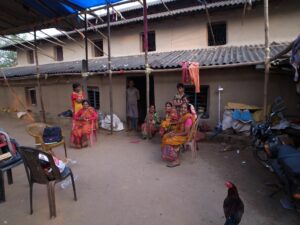FACULTY
教員紹介
FACULTY
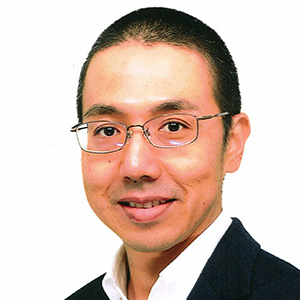
Professor
KUBOTA Tetsu
久保田 徹 教授
アジア建築都市環境研究室
Building and Urban Environmental Science in Asia Laboratory
専門
建築・都市環境工学,グローバルサウスの地域研究
Building and Urban Environmental Science,Area Studies in the Global South
研究の概要説明
BUESAは,人々の生活の質(QoL)と低炭素・脱炭素化を両立させながら,グローバルサウスにおける持続可能な社会の実現に向けた建築環境工学や地域研究を行う研究室です。グローバルサウスの国々の多くは開発途上にあるため,アフォーダブルな技術/政策提案を行うことが強く求められます。そこで,BUESAでは,QoLの向上を大きな目標に据えたうえで,アフォーダブルでありながら,低炭素・脱炭素化と健康・快適性を同時に満たす方法を探求します。基本的に,本研究室で実施する研究は,国際協力プロジェクトベースで行います。現在,取り組むプロジェクトは下記のとおりです。
1.パリ協定による2030年目標に向けた高温多湿気候下のインドネシアにおける低炭素アフォーダブル集合住宅の開発
2.モンスーン・アジアの都市住宅におけるパッシブ建築文化の創成
BUESA aims to contribute toward achieving sustainable societies in the Global South with balancing between improvement of QoL and low- and zero-carbon objectives in the field of Building Science and Area Studies. As most countries in the Global South are still on the course of their developments, affordability is strongly required on the other hand. We therefore try to achieve affordability, low- or zero-carbon, and comfort and health at the same time with the goal of improving QoL. Basically, we are doing research based on the international cooperation projects. The ongoing projects are as follows:
1. Development of low-carbon affordable apartments in the hot-humid climate of Indonesia towards Paris Agreement 2030
2. Creation of passive architectural culture among urban houses in the Monsoon Asia
現在の研究テーマ
● 蒸暑地域における総合的なパッシブクーリング手法の開発
● 蒸暑地域のアフォーダブル集合住宅を対象とした総合的な自然換気システムの開発
● グローバルサウスにおける生活の質の向上と省エネ・低炭素化の両立
● グローバルサウスにおける脱炭素化を実現するための新しい価値の創出
● Development of comprehensive passive cooling techniques for the tropics
● Development of comprehensive ventilation strategies for affordable apartments in the tropics
● Balancing QoL and energy-saving in the course of development in the Global South
● Creation of a new value for decoupling in the Global South
研究室サイト
-
BUESA Laboratory
広大研究者総覧
-
建築・都市環境工学,グローバルサウスの地域研究
https://seeds.office.hiroshima-u.ac.jp/profile/ja.da39c2ab264a8c8e520e17560c007669.html
研究・プロジェクト内容
パリ協定による2030年目標に向けた高温多湿気候下のインドネシアにおける低炭素アフォーダブル集合住宅の開発
蒸暑地域ならではの低炭素技術を開発し、その社会実装を目指す
2016年のパリ協定によって、開発途上国でも温室効果ガス排出量の削減目標が設定された。生活水準が十分でない途上国の住宅では、健康で快適な居住環境の確保が先決だが、同時に低炭素化も目指さなければならず、その実現は容易ではない。本研究は、インドネシアで今後増加する中高層集合住宅を対象に、蒸暑地域ならではの低炭素建築技術を開発し、実際の建物や同国の国家規格など法的拘束力のある建築規制へ導入することを目指す。
集合住宅を低炭素化し、パリ協定の目標値の達成に貢献!
包括的低炭素技術をハードとソフトの両面で社会実装することにより、インドネシアの建築セクターにおける低炭素化を通して、パリ協定による同国の温室効果ガス削減目標の達成に貢献する。将来的には、インドネシア国内の研究拠点の拡大や周辺国への情報発信、技術共有も目指す。
Development of low-carbon affordable apartments in the hot-humid climate of Indonesia towards Paris Agreement 2030
Developing low-carbon technologies suitable to hot-humid regions with the aim of implementing them in society
Under the Paris Agreement signed in 2016, developing countries have targets for reducing greenhouse gas emissions. Securing healthy, comfortable housing is a priority in countries with insufficient living standards, but low-carbon targets have to be met as well ? achieving both goals is not easy. Targeting high- and medium-high-rise apartment housing, which is becoming more prevalent in Indonesia, this project develops low-carbon construction technologies suitable to hot-humid regions. It aims to have the technologies incorporated into actual buildings and into national standards and other legally-binding construction regulations.
Low-carbon apartment housing that can contribute to achieving Paris targets
By implementing both hardware and software aspects of comprehensive low-carbon technologies, this project will contribute to Indonesia for achieving its greenhouse gas reduction targets under the Paris Agreement through the application of low-carbon technologies in Indonesia’s building sector. Subsequently, it will aim to expand research facilities in Indonesia and disseminate and share information with neighboring countries.
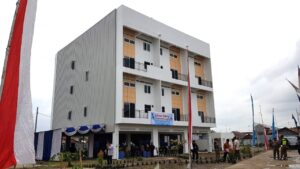
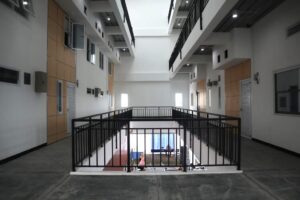
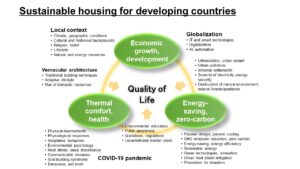
モンスーン・アジアの都市住宅におけるパッシブ建築文化の創成
本研究では、モンスーン・アジアの新興・途上国の都市居住者の間で、脱炭素化を目指した「パッシブ建築文化」を創り出すことを目指し、研究対象地のインドで、居住者の幸福度とエネルギー消費に影響を及ぼす要因を分析する。一方で、居住環境や行動の実態を調査し、「熱的快適性・健康」‐「省エネ・脱炭素」‐「幸福度・生活の質」を同時に満たす方法を考察する。
Creation of passive architectural culture among urban houses in the Monsoon Asia
This study aims to create a new passive architectural culture, where people naturally prefer passive lifestyle without relying on mechanical means such as air-conditioning. First, we conduct surveys on well-being in New Delhi and Kharagpur, India. Second, we conduct field investigations in the same cities to understand their current living environments as well as lifestyle in urban houses. Based on the results, we attempt to find the ways to harmonize “thermal comfort and health”, “energy-saving and low-carbon” and “improvement of well-being and QoL” simultaneously among the urban residents.
